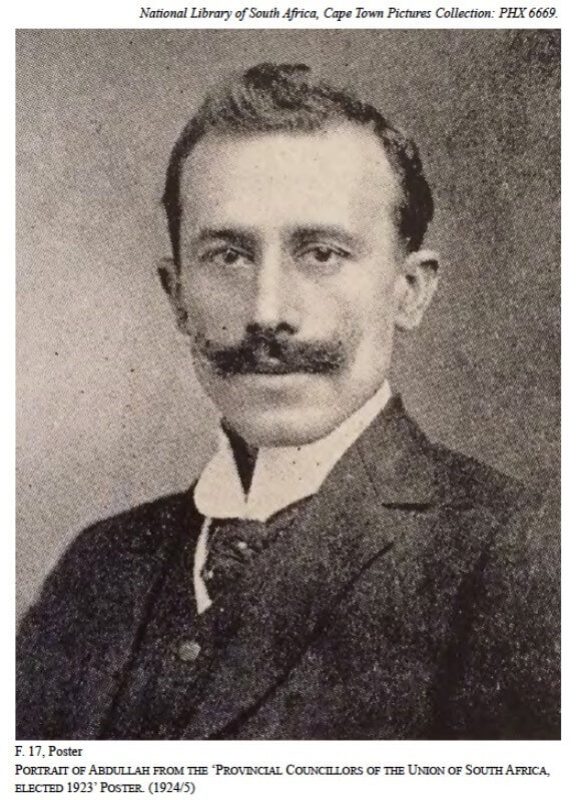PIONEER
Dr Abdullah Abdurahman

Politician | Community activist | Medical doctor
Born: 18 December 1872 Died: 2 February 1940
“The native, Indian and coloured races of this country are rapidly advancing, and their higher aspirations and ambitions must be accepted as legitimate and be given scope for realisation. But the present trend of legislation can only give rise to serious misgivings ...”
Who is
Dr Abdullah Abdurahman?
Coloured and Indian rights’ activist and the first coloured person to be elected to the Cape Town city council and the Cape provincial legislature.
Professions
and Roles
Medical doctor, politician, educationalist, public health official, coloured and Indian rights’ and anti-segregation activist, and leader of the African People’s Organisation (APO).
Best Known For
Being the President of the African People’s Organisation between 1905 and 1940.
Life highlights
- Abdurahman was the first coloured pupil at the South African College High School (SACS) in Cape Town.
- In 1888, he studied medicine in Glasgow, Scotland, where he married Helen (Nellie) Potter James.
- Abdurahman started a multi-racial medical practice on Loop Street, Cape Town in 1902.
- In 1904, he was elected as the first non-white member of the Cape City council, representing District Six. Then in 1914, he won a seat in the Cape Provincial Council. He held both of these seats until he died in 1940, and used his role within the formal white political space to advocate for the rights of coloured people.
- In 1909, Abdurahman represented the APO as part of the ‘South African Coloured and Native Deputation’ to London, England to protest the proposed Union between British and Boer white forces in South Africa. He also started the Teachers’ League of South Africa, a coloured teachers’ organisation which exists to this day. This organisation lobbied for improved education for the coloured community.
- In 1911, Abdurahman was involved with the formation of Trafalgar High School which at the time was the only school to offer secondary education to coloured pupils.
- When Abdurahman died in 1940, the funeral was attended by 30 000 Capetonians of every race and colour.
- In 1999, President Nelson Mandela posthumously awarded Dr Abdurahman the Order for Meritorious Service in Gold for his work against racial oppression.
IN THEIR OWN WORDS
“The Act of Union cannot be a source of pride to anyone … It was a blow to the sacred human right of political freedom. It gave a distinct set-back to the progressive spirit of the Cape regime. Many anticipated that a new era had dawned for South Africa, but the dark clouds that are gathering must convince everyone that those anticipations will not be realised …”
– Dr Abdullah Abdurahman, APO presidential address, 29 March 1921
IN THE WORDS OF OTHERS
“Throughout the years that have intervened [1898 to 1940], the Doctor, to his great honour, has never wavered or faltered in his mission as the champion of the defenceless, underprivileged and voiceless people.”
– Bishop S W Lavis, then eminent Anglican clergyman
Some people called the APO the Abdurahman’s Political Organisation due to his leadership of the organisation.
References
No references
